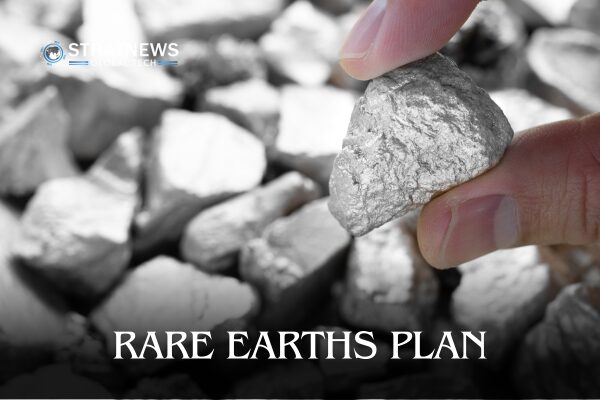Australia Weighs Price Floor to Boost Rare Earths Sector
Australia is exploring the idea of introducing a price floor to support its critical minerals sector, including rare earths. The proposal, confirmed by Resources Minister Madeleine King, has already boosted confidence in the market. Shares of several Australian-listed rare earths producers surged on the news.
Supporting Domestic Supply Amid Global Dependence
Australia has been working to become a reliable alternative to China in the supply of critical minerals. These materials are vital for sectors such as defence, automotive manufacturing, and advanced technologies.
On Tuesday, the government pledged $87 million to support Nyrstar’s processing facilities. The company is evaluating the potential to produce critical minerals like antimony, bismuth, germanium, and indium at its Port Pirie and Hobart smelters.
This move follows falling global prices for some key minerals, making it difficult for Western nations to justify expanding local processing capabilities. China remains the dominant player due to its vast supply and established infrastructure.
A Strategic Shift in Global Minerals Policy
Minister King’s comments follow a recent decision by the US government to provide a pricing floor to its largest rare earths producer. That policy aimed to strengthen the country’s rare earths industry by offering pricing stability. King echoed this sentiment, stating, “Pricing certainty means companies and investors are less exposed to volatile markets and prices, which are opaque and prone to manipulation.”
Australia has already committed A$1.2 billion (US$775 million) to create a strategic critical minerals reserve. As part of this initiative, the government is actively considering how to implement a pricing floor.
The proposed plan involves voluntary national offtake agreements. These would secure long-term purchase commitments for critical minerals, particularly those with strategic uses in defence and advanced technologies. Australia is well-placed to supply heavy rare earths, such as terbium and dysprosium, which are rare and more valuable due to their unique properties.
Market Reacts Positively to Government Support
The announcement had an immediate impact on the market. Shares in Lynas Rare Earths rose over 6%, reaching their highest level in 13 years. Iluka Resources and Arafura Rare Earths each saw gains of nearly 10%.
Luke Winchester, portfolio manager at Merewether Capital, noted, “I think the market is now viewing rare earths miners and processors as strategic assets given the government involvement.”
Meanwhile, US firm MP Materials recently secured a multibillion-dollar agreement with the US government to boost rare earth magnet production. That deal included a price floor, which analysts believe could reshape the global rare earths market. While it supports producers, it could lead to higher costs for end-users, including automakers and electronics manufacturers.
with inputs from Reuters


